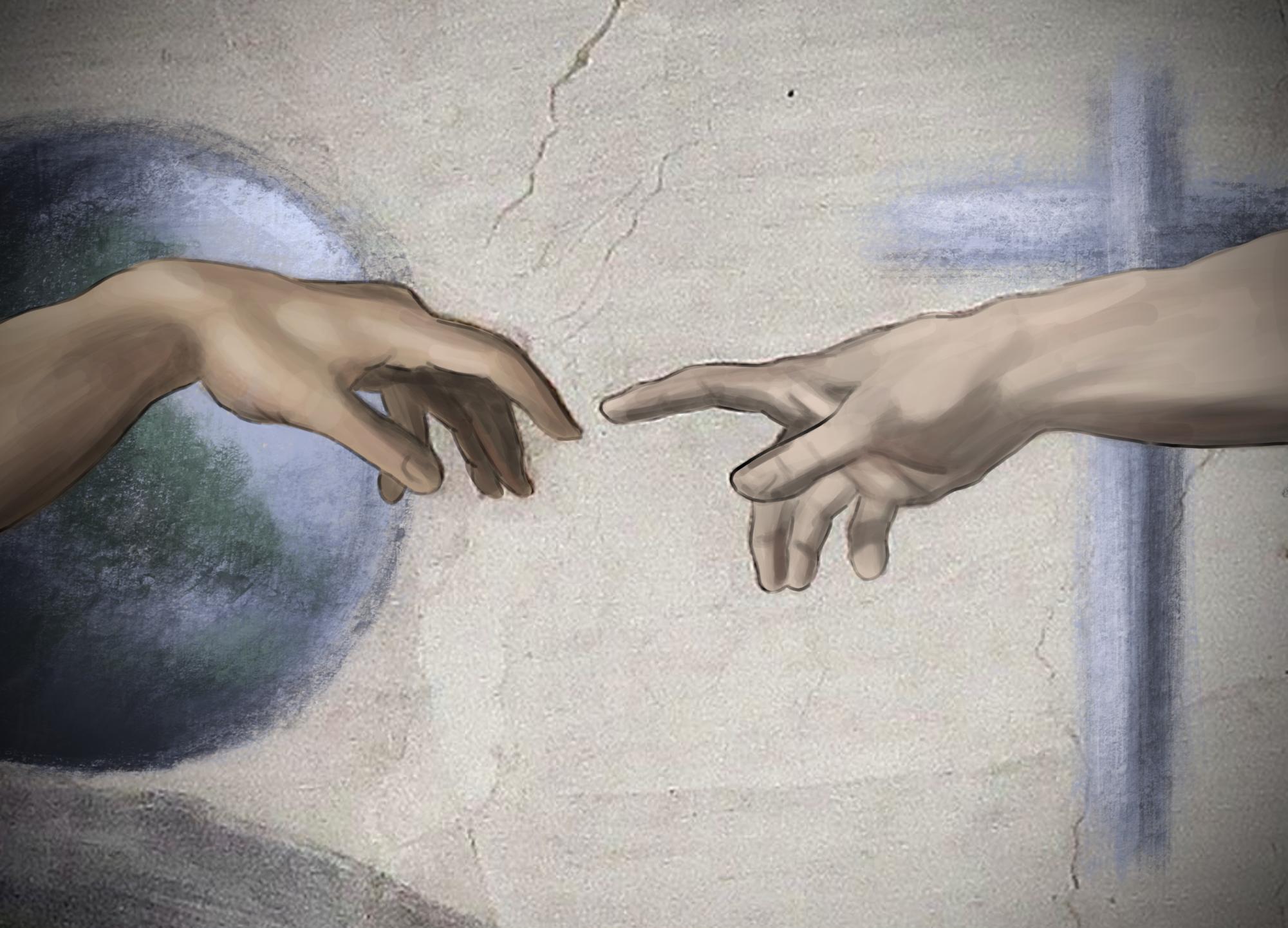TRUTH MATTERS… Donate to support excellence in student journalism
Oil and water are notorious for their refusal to blend, much like the common belief that religion and science can never coexist harmoniously.
This perception has constructed a false narrative surrounding faith and science, suggesting that an unbridgeable divide exists between them.
Contrary to popular belief, religion and reason aren’t mortal enemies, but a powerful duo that sheds light on our existence and purpose.
The ongoing clash between science and faith, especially within Christianity, has sparked heated debates among theologians, philosophers and scientists for centuries. The tension between belief in God and scientific concepts like evolution has fueled fiery discussion and deep disagreements for decades, keeping this topic at the forefront of intellectual discourse.
Ironically, much of science was founded on Christianity. Many founding fathers of science became interested in the field due to their belief in God.
Robert Boyle, known for formulating the first gas law, proclaimed that a deeper understanding of science serves to glorify God on a higher level.
Likewise, Gregor Mendel, the father of genetics, believed that studying the natural world could unveil the laws of nature established by God.
In the same spirit, Isaac Newton, who established the laws of gravitation and motion, viewed scientific inquiry as a pathway to reveal God’s design for the universe and a means to honor the Creator.
The biggest argument against the harmony of faith and science is their perceived philosophical incompatibility.
Because science concerns the natural world and religion addresses the supernatural world, many believe the two can never see eye to eye.
However, this couldn’t be farther from the truth.
Scientific discoveries can deepen the Christian faith by revealing the complexity and beauty of the universe, showcasing the intricate design and cosmic order of the Creator.
The mysteriously vast nature of space, the precision of biological systems and the laws of nature cultivate a profound sense of wonder that resonates with spiritual values. This interplay between faith and science invites us to view the natural world as a manifestation of God’s creativity and intention, fostering a richer understanding of how the natural and supernatural realms collide.
When discussing the tension between Christianity and science, evolution is the hot topic on everyone’s tongue. Theologians and scientists continue to butt heads on this topic, but evolution is not as contradictory to Christianity as it seems to be.
The theory of evolution is the idea that all living entities on Earth originated from a common ancestor and, through the process of natural selection, developed traits that provided advantages in their specific environments. This concept seemingly clashes with many Christian beliefs, especially the notion of a literal six-day creation, which contradicts the scientific timeline of evolution that unfolds over millions of years.
The Christian faith generally upholds that God is the ultimate creator who established the laws of nature, including evolution. Evolution serves as a scientific explanation for the development of life, with the belief that God actively guided the process.
Thus, God works through natural laws, and evolution is no exception.
The perceived contradictions between religion and science blind people to the reality that faith and reason are two sides of the same coin. Although different in their approach to understanding the universe, science and Christianity share common threads in encouraging critical thinking and comprehending the mysteries of the universe.
Theologians and average Christians alike have wrestled with the same questions for centuries, whether it be uncertainties about the origin of species or the extent to which the Bible should be interpreted literally.
The Bible is at the center of Christian knowledge. While Scripture reveals God’s heart and design for the world, it doesn’t disclose every detail about the universe, which leaves much shrouded in mystery.
With so much still unknown, questioning and seeking answers are fundamental to the pursuit of truth, a journey that resonates with many Christians. In the same way, science depends on questioning and seeking answers to understand the natural world. Both science and religion encourage critical thinking as a way to deepen our understanding of reality. As we delve further into the pursuit of truth, both faith and science can develop more nuanced perspectives that complement rather than contradict each other.
For some, the seeming incompatibility between Christianity and science is too significant to work around. In addition to evolution, ideas like the Big Bang Theory and human origins have come into repeated conflict with Christian values.
The Big Bang Theory upholds that the universe began roughly 13.8 billion years ago from an extremely hot state, rapidly expanding and cooling over time. This sudden expansion led to the formation of matter, stars, galaxies and other characteristics that define our universe.
At first glance, the Big Bang Theory seems to dismantle everything the Bible records about God’s six-day creation. Yet, upon closer look, the Big Bang Theory can be interpreted as the work of God, the moment He spoke creation into the world.
God’s command, “Let there be light,” could correspond to the immense release of energy and matter that marked the beginning of the universe. By framing the Big Bang as a part of God’s creative process, Christians can appreciate the scientific perspective without compromising their values.
In addition to the Big Bang Theory, human origins have created a divide between scientific and religious communities. Fossil evidence and genetic studies suggest that modern humans share common ancestry with other primates, challenging beliefs in the creation of Adam and Eve.
Many Christians affirm that, although humans may share common ancestry with other primates, God uniquely created humanity in His image, gifting us with a spiritual nature. This allows us to accept evolutionary biology while maintaining theological beliefs about human purpose and spirituality.
As a Christian, I’ve struggled to bridge my faith with my value for logic and reasoning. However, I’ve come to realize that science and Christianity don’t need to be separate entities.
From God comes all things, and to God are all things.
Science is no exception.
I’ve also learned to recognize that science is man-made, meaning there is significant potential for error, given the inherent imperfections of people.
Science is ever-evolving, and no theory is ever set in stone.
All of this is not to say that science is obsolete. Science grants us an opportunity to marvel at God’s creation and creativity. Thus, faith and science aren’t the oil and water we perceive them to be. Rather, they’re two lenses through which we can explore the profound questions of life. Together, they provide a more nuanced perspective on the universe and our place within it.
By furthering this dialogue, we can advance toward a deeper appreciation of both God’s creation and the human pursuit of knowledge.
We can marvel at the supernatural love that inspired God to grant us life in such a vast and magnificent world.
This article originally appeared in the Fall 2024 print edition.




